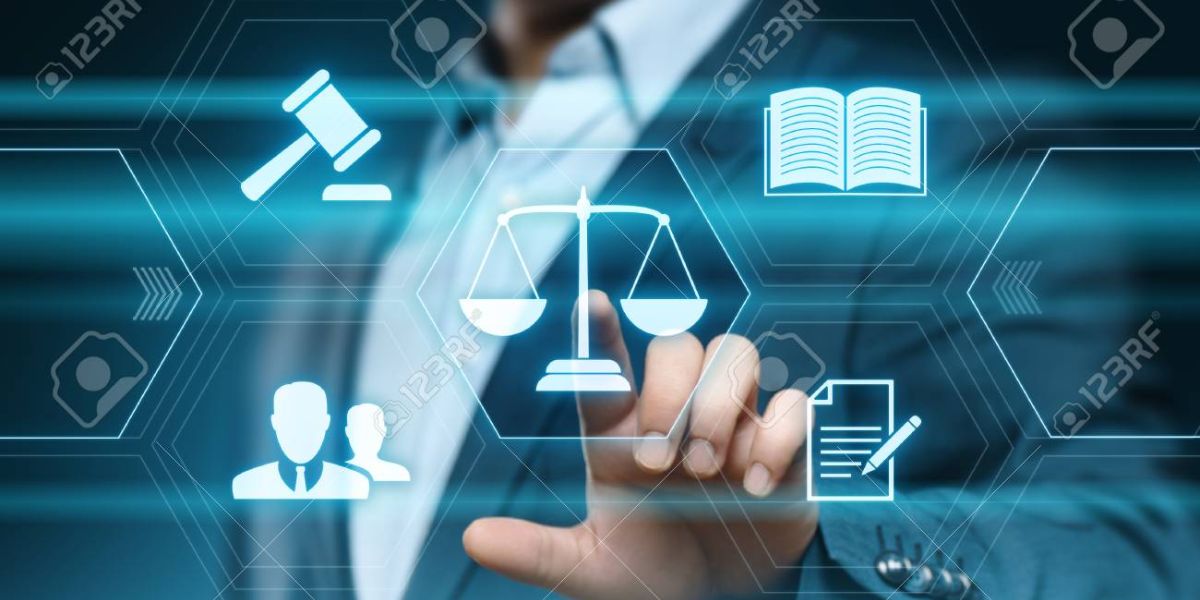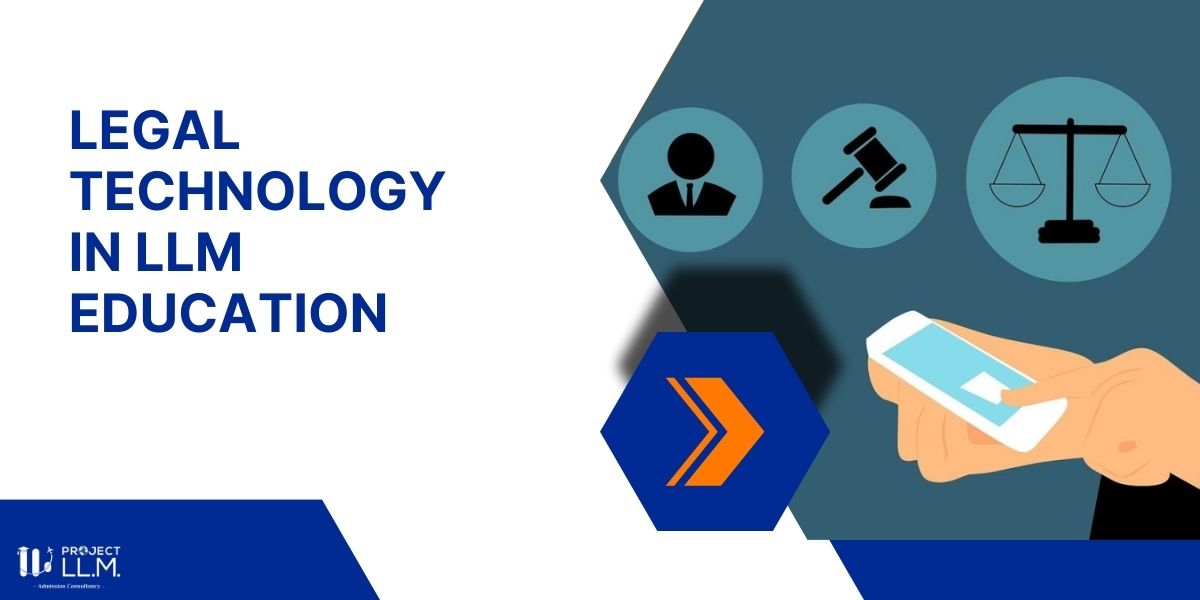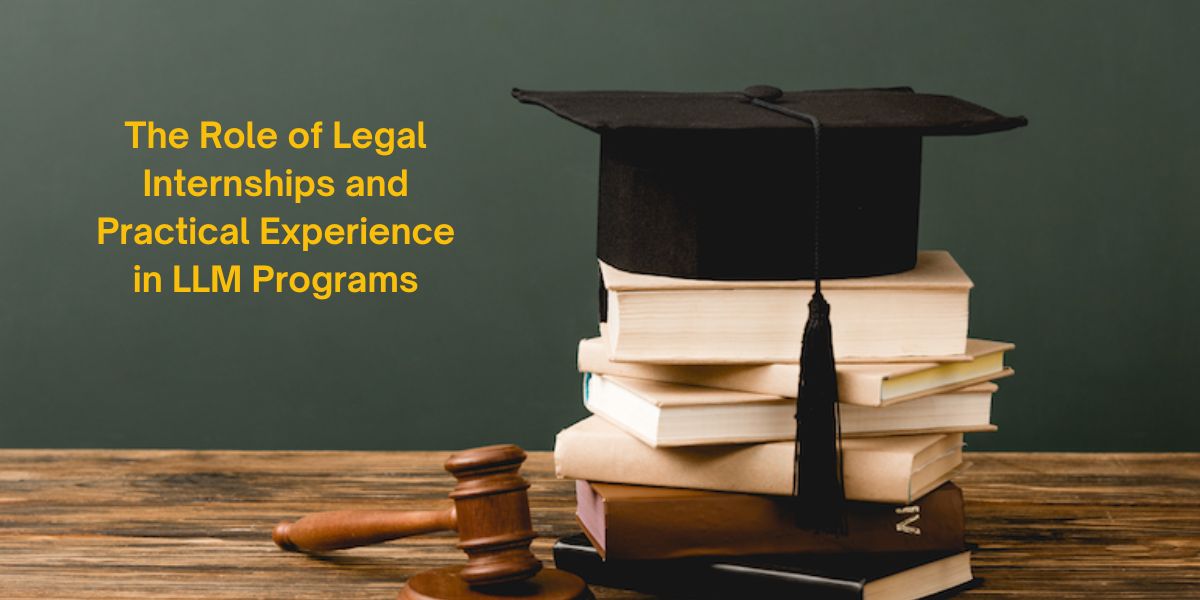The legal profession is undergoing a technological transformation, and staying ahead requires adaptability and a forward-thinking approach. LLM programs are at the forefront of this change, incorporating legal technology into their curricula to prepare students for a rapidly evolving legal landscape. From specialized courses and hands-on simulations to exposure to cutting-edge tools, these programs are shaping tech-savvy legal professionals equipped to tackle challenges in a digital world.
This article explores the role of legal technology in LLM education, highlighting its integration into academic programs and its importance in preparing students for the future of law.

Understanding Legal Technology in the Modern Legal Landscape
Legal technology refers to the use of software, tools, and platforms that improve the efficiency, accuracy, and accessibility of legal services. It encompasses a range of innovations, including:
- Artificial Intelligence (AI): Automating legal research, document review, and predictive analytics.
- Blockchain: Revolutionizing contract management, intellectual property rights, and secure transactions.
- Legal Research Tools: Advanced platforms that streamline case law analysis and citation management.
- E-Discovery Software: Simplifying the process of identifying and managing electronic evidence.
With law firms, corporations, and courts increasingly adopting these technologies, legal professionals must understand their functionality, applications, and implications.
Why Legal Technology Matters in LLM Education
The integration of legal technology in LLM programs is not just a trend—it’s a necessity. Technology is transforming how legal services are delivered, demanding a new skill set from lawyers. Here’s why it matters:
Meeting Market Demands
Employers now seek legal professionals who can leverage technology to improve efficiency and reduce costs. LLM graduates with tech expertise are more competitive in the job market, particularly in areas like corporate law, litigation, and compliance.
Bridging the Gap Between Law and Technology
Legal technology requires a unique combination of legal knowledge and technical understanding. LLM programs help bridge this gap by teaching students to apply legal principles in a tech-driven context.
Preparing for Future Challenges
As technology evolves, so do the legal challenges associated with data privacy, cybersecurity, and intellectual property. Understanding these challenges equips LLM graduates to advise clients effectively in an increasingly digital world.
How LLM Programs Are Integrating Legal Technology
LLM programs around the world are innovating their curricula to incorporate legal technology. Here are some ways these programs are preparing students for the tech-driven legal profession:
Specialized Legal Technology Courses
Many LLM programs now offer courses dedicated to legal technology, such as:
- Law and Artificial Intelligence: Examining the legal and ethical implications of AI.
- Blockchain and Smart Contracts: Exploring how blockchain technology is reshaping contract law and property transactions.
- Cybersecurity Law: Addressing legal frameworks for protecting data and managing breaches.
These courses provide students with a strong foundation in understanding and applying technology in legal contexts.
Hands-On Technology Simulations
To complement theoretical knowledge, LLM programs often include practical simulations and workshops. These activities allow students to use technology in real-world scenarios, such as:
- Conducting e-discovery exercises using advanced software.
- Drafting and analyzing smart contracts on blockchain platforms.
- Using predictive analytics tools to forecast case outcomes.
These practical experiences ensure that students are not only familiar with technology but are also confident in its application.
Collaboration with Tech Companies
Many universities collaborate with legal tech firms to provide students with access to cutting-edge tools and industry expertise. Partnerships often include:
- Guest lectures from technology leaders.
- Access to proprietary software for educational use.
- Opportunities for internships and projects with legal tech startups.
Such collaborations bridge the gap between academia and the legal industry, offering students valuable insights into how technology is shaping legal practice.
Benefits of Legal Technology Education in LLM Programs
The integration of legal technology into LLM education offers several advantages for students:
Enhanced Employability
Legal employers increasingly prioritize candidates with tech expertise. An LLM degree that incorporates legal technology gives graduates a competitive edge in the job market, particularly in roles involving compliance, data protection, and contract management.
Improved Efficiency and Productivity
Understanding legal technology enables lawyers to work more efficiently. Automation tools and AI allow legal professionals to focus on high-value tasks while delegating repetitive processes to technology.
Ethical and Strategic Insights
Legal technology courses often explore the ethical implications of using technology in law. This equips students to address complex issues like algorithmic bias, data security, and client confidentiality with confidence and integrity.
Global Opportunities
Legal technology is a global phenomenon, creating opportunities for LLM graduates to work in diverse markets. From advising multinational corporations to joining international law firms, tech-savvy lawyers are in demand worldwide.
Challenges in Integrating Legal Technology into LLM Education
Despite its benefits, integrating legal technology into LLM programs is not without challenges:
Keeping Pace with Rapid Technological Advancements
Technology evolves quickly, and universities must constantly update their curricula to remain relevant. This requires significant investment in faculty training, software acquisition, and infrastructure development.
Balancing Traditional Legal Education with Innovation
While technology is essential, core legal principles remain the foundation of legal practice. Striking the right balance between traditional and innovative education is a challenge for LLM programs.
Varying Levels of Student Familiarity
Not all students enter LLM programs with the same level of technological proficiency. Programs must ensure that courses are accessible to students from diverse backgrounds while still offering advanced learning opportunities.
The Future of Legal Technology in LLM Education
As technology continues to reshape the legal profession, its integration into LLM education will deepen. The future of legal technology in LLM programs is likely to include:
- Virtual Reality (VR) and Augmented Reality (AR): Using immersive simulations to teach courtroom procedures and negotiation skills.
- AI-Driven Personalization: Tailoring educational content to individual student needs through AI-powered platforms.
- Global Collaboration Platforms: Enabling students to work on cross-border legal projects using collaborative technology.
These advancements will further enhance the value of LLM programs, preparing graduates to thrive in an increasingly tech-driven legal landscape.
The integration of legal technology into LLM education represents a pivotal step toward preparing legal professionals for the future. By embracing innovation, students gain the knowledge, skills, and confidence needed to navigate a rapidly evolving legal environment.
From specialized courses and practical simulations to industry collaborations, LLM programs are equipping students with the tools to succeed in a tech-driven legal profession. As the legal world continues to embrace technology, LLM graduates with expertise in legal technology will play a crucial role in shaping the future of law.
FAQs
Why is legal technology important in LLM programs?
Legal technology equips LLM students with the skills needed to navigate and excel in a tech-driven legal industry.
What types of legal tech tools are taught in LLM programs?
LLM programs cover tools like AI for legal research, e-discovery software, and blockchain for smart contracts.
How does legal technology enhance career prospects for LLM graduates?
Tech proficiency makes LLM graduates more competitive for roles in compliance, data protection, and legal innovation.



